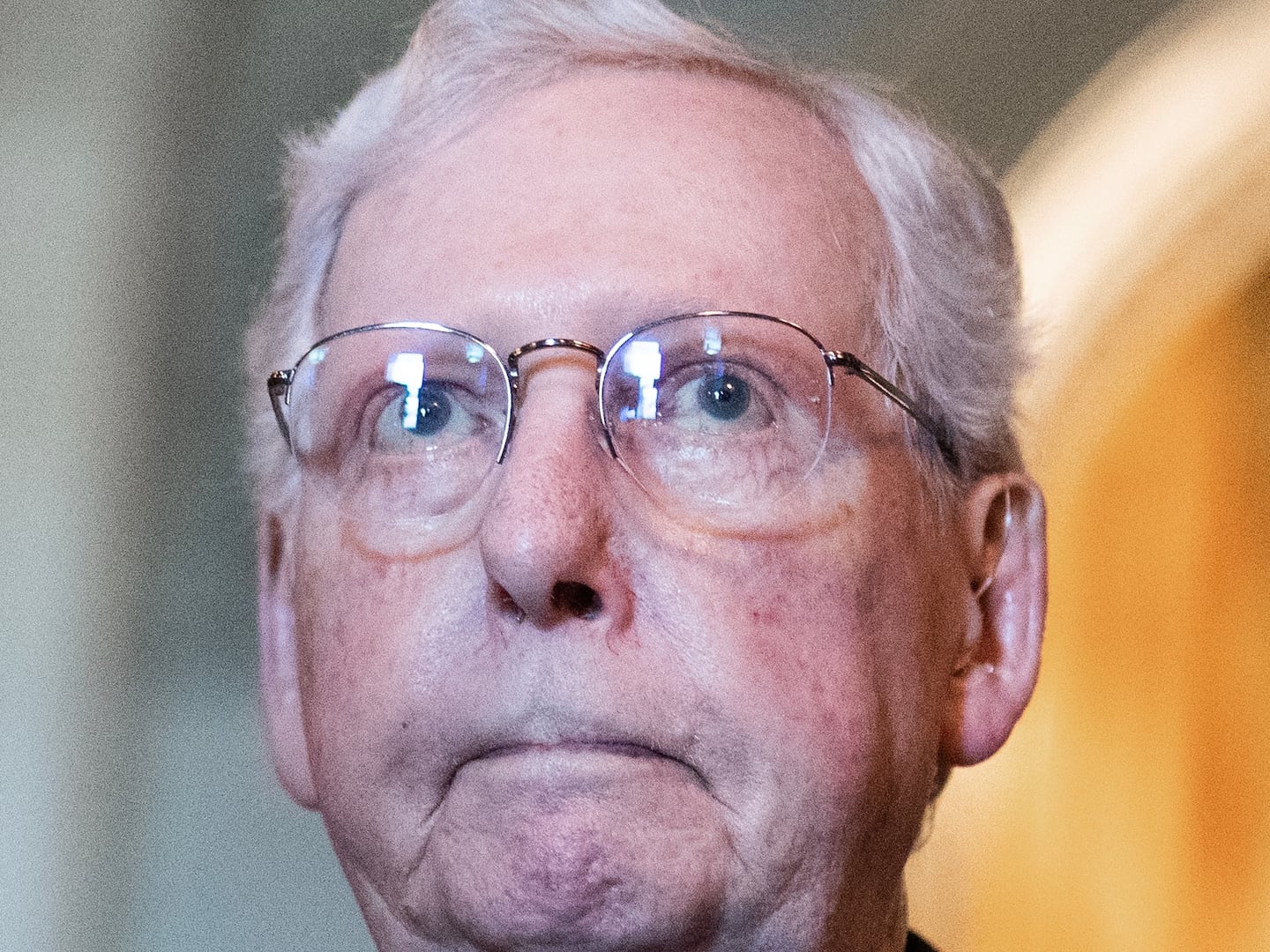Dr. Douglas Powell saw the Chipotle E. coli outbreak coming eight years ago.
In 2007, Powell, a former Kansas State University food safety professor who now publishes the popular and appetizingly-named Barfblog, was turned off by the growing chain’s emphasis on “naturally-raised meats” and “organic” ingredients.
“I’m never eating there again,” he declared in a Barfblog post.
With the Centers for Disease Control and Prevention (CDC) now reporting 52 cases of E. coli O26 infections, including 20 hospitalizations, linked to Chipotle restaurants across nine states, Powell may have dodged a bullet—or, at least, some projectile vomit—by swearing off the foil-wrapped burritos. In fact, he all but predicted this outcome.
“Kudos to Chipotle for capitalizing on hucksterism,” he explained at the time, citing what he perceived as the chain’s overuse of buzzwords. “But given the ubiquitous outbreaks of E. coli and Salmonella on spinach, lettuce, and tomatoes, I choose to purchase food from those who value and promote microbiologically safe food.”
In 2008, when Chipotle announced that it would purchase more locally raised produce, Powell cautioned again, “I’m all for local food, as long as someone is checking to ensure the microbiological safety of fresh produce. Local does not automatically mean safe.”
As 2016 approaches, the chips are down for Chipotle. The company’s stock has taken a 25 percent nosedive over the last two months, as reports of the rare strain of E. coli continue to emerge.
In early November, the CDC and FDA investigated reports of infection linked to Chipotle restaurants in Washington and Oregon. More cases from the same window continued to be reported throughout the month and, on Dec. 4, the CDC updated the full list to include reports of illness in California, Illinois, Maryland, Minnesota, Ohio, New York, and Pennsylvania.
This week, in what appears to be an unrelated incident, 80 Boston College students, including several members of the men’s basketball team, fell ill after eating at a Chipotle. By Wednesday, the count rose to 120 and the presence of norovirus, which causes vomiting and diarrhea, was confirmed. It’s not E. coli but it is bad timing.
In an attempt to rescue his company’s sagging public reputation, Chipotle founder and co-CEO Steve Ells is promising Wall Street that change is coming.
“We have this desire to be the safest place to eat,” he told the Bernstein Consumer Summit on Tuesday. “We’re serving extraordinary quality ingredients, and that’s been something in place for many, many years now, and we’re the best in the world at that. We’re going to be the best in the world at food safety, and we’re taking this very, very seriously.”
As Nation’s Restaurant News reported, Ells announced at the summit that Chipotle will now be preparing tomatoes, lettuce, and cilantro in a commissary and using a “sanitary kill step” to reduce the risk of foodborne illness. The company has also announced an improved food safety program that includes more rigorous testing of fresh produce and better internal training for employees.
But Powell believes that Ells’s commitment to “quality ingredients” shouldn’t have preceded Chipotle’s heightened focus on food safety.
“The program’s nice,” he told The Daily Beast, wryly adding, “I wonder why they didn’t do it before.”
In fact, two of the ingredients that Chipotle will now be preparing in a commissary were ones that Powell highlighted back in 2007 as risk factors for foodborne illness at the fast-casual chain: lettuce and tomatoes.
Powell said that he’d leave the final conclusions to epidemiological experts on the scene, but did note which ingredients are most likely to present an E. coli risk: “Besides lettuce and tomatoes, it can often be things like herbs, like cilantro or parsley. I don’t know if they’re used in the burritos or not because I don’t really go there.” (Chipotle’s ingredients list does not include parsley, but cilantro can be found in the restaurant’s salsa, rice, and guacamole.)
Another possible warning sign came in September of this year, when Minnesota health officials determined that some of the restaurant’s tomatoes were the cause of 64 Salmonella infections in the state this summer. Nine people were hospitalized and the company switched suppliers.
Chipotle itself even acknowledged the risk of foodborne illness in its 2014 annual report: “We may be at a higher risk for foodborne illness outbreaks than some competitors due to our use of fresh produce and meats rather than frozen, and our reliance on employees cooking with traditional methods rather than automation.”
On Wednesday’s edition of Barfblog, Powell’s long-simmering beef with Chipotle boiled over into a scalding “I told you so” post, in which he reviewed his long history of criticism and chastised the chain for its handling of the current crisis.
“This is a company that has focused on sound bites rather than microbial food safety,” he alleged in our interview.
When asked what steps the restaurant had taken to ensure the microbial safety of its ingredients prior to the newly announced program, Chipotle spokesperson Chris Arnold told The Daily Beast, “That varies based on individual ingredients, though all of our practices have always been very much within industry norms. It’s important to note that restaurant practices are regulated by health codes, and restaurants are routinely inspected by health officials. Everything we have done in our supply chain and in our restaurants has been within industry norms.”
Arnold added, “In addition to testing conducting by health officials, we have tested thousands of samples of food and surface areas in restaurants that have been linked to this, and none of those tests have shown any E. coli.”
It is a distinct possibility that an offending ingredient in the current E. coli cases will never be identified. The company has publicly stated that “no ingredients that are likely to have been connected to this incident remain in Chipotle’s restaurants or in its supply system.”
And CDC spokesperson Tom Skinner told The Daily Beast, “We have not pinpointed a specific food source. And the fact is we may never be able to identify or pinpoint a specific food source from the restaurant.”
With no answers in sight, Chipotle is left to battle for its customers. The company is predicting an 8 to 11 percent drop in sales for the fourth quarter and cancelling projections of a sales increase in 2016. Chipotle told AdAge that only 57 percent of its customers were aware of the E. coli issue, as if that were heartening news. But in its response, the company has also been pushing back on the media and even the CDC—both risky moves in the midst of a PR crisis.
As Fortune reported, Chief Financial Officer Jack Hartung complained about “sensational headlines” at an investor conference. He also claimed that the CDC is partially responsible for Chipotle’s current woes: “It’s been fueled by the sort of unusual, even unorthodox way the CDC has chosen to announce cases related to the original outbreak in the Northwest. They’ve done that a couple of times now and they’re not announcing new cases—they’re simply announcing new reporting to them from local health agencies.”
It is true that the CDC has posted at least seven updates on the situation but that is not a break from convention so much as it is a reflection of the way an E. coli outbreak works. So far, the earliest infection date the CDC has on record is Oct. 19 and the latest is Nov. 14 but, as the agency notes, illnesses after Nov. 11 “might not yet be reported due to the time [two to three weeks] it takes between when a person becomes ill and when the illness is reported.” This trickle of information is typical for a multistate foodborne disease outbreak.
The CDC told The Daily Beast directly that there is nothing unusual about their handling of the Chipotle-related outbreak. Said Skinner, “We are investigating this outbreak just like any other foodborne disease outbreak that we investigate and we’re posting our updates the same way we post all of our updates. We’re not doing anything new, or out of the ordinary, or unusual here investigating this outbreak and providing updated information about [it].”
When asked whether Chipotle stood by Hartung’s comments, Arnold said he was unsure of their specific context, adding, “We have been working closely with CDC throughout this incident and continue to do so. While we might not always agree with their decisions regarding updates, we fully understand their rationale and the charge they have to ensure public health.”
In the broader context of foodborne illness in the U.S., the 52 cases at Chipotle are akin to a single grain of rice in a tub. As Chipotle was sure to highlight in its latest press release, 48 million Americans come down with a foodborne illness every year, according to CDC estimates, including 265,000 cases of E. coli. More worryingly, 128,000 people a year are hospitalized due to foodborne illness and 3,000 people die. Fifty-two cases is an infinitesimal fraction of these numbers.
But as was the case with the Blue Bell Listeria outbreak or the Costco Rotisserie Chicken Salad E. coli investigation, multistate incidents tied to a specific brand can quickly erode customer trust.
“Making your customers sick is really bad for business,” Powell told The Daily Beast, “and it’s just not a nice thing to do.”
Going forward, Powell hopes that restaurants can learn from the Chipotle situation that food safety is just as important to advertise as food quality.
“For any company, if you really want public trust you have to market food safety at retail,” he said. “If you go to retail, whether it’s a supermarket or a fast-food joint, you’re marketed in so many buzzwords except ‘microbiologically safe.’”
And despite his well-known aversion to Chipotle, Powell is fine with others dining there so long as they don’t read “local,” “fresh,” and “organic” as synonyms for “safe.”
“It’s not my job to make value judgments for other individuals,” he said. “My job is to make sure that it doesn’t make them barf. So above everything else, it has to be microbiologically safe. Then you can add the adjectives.”





